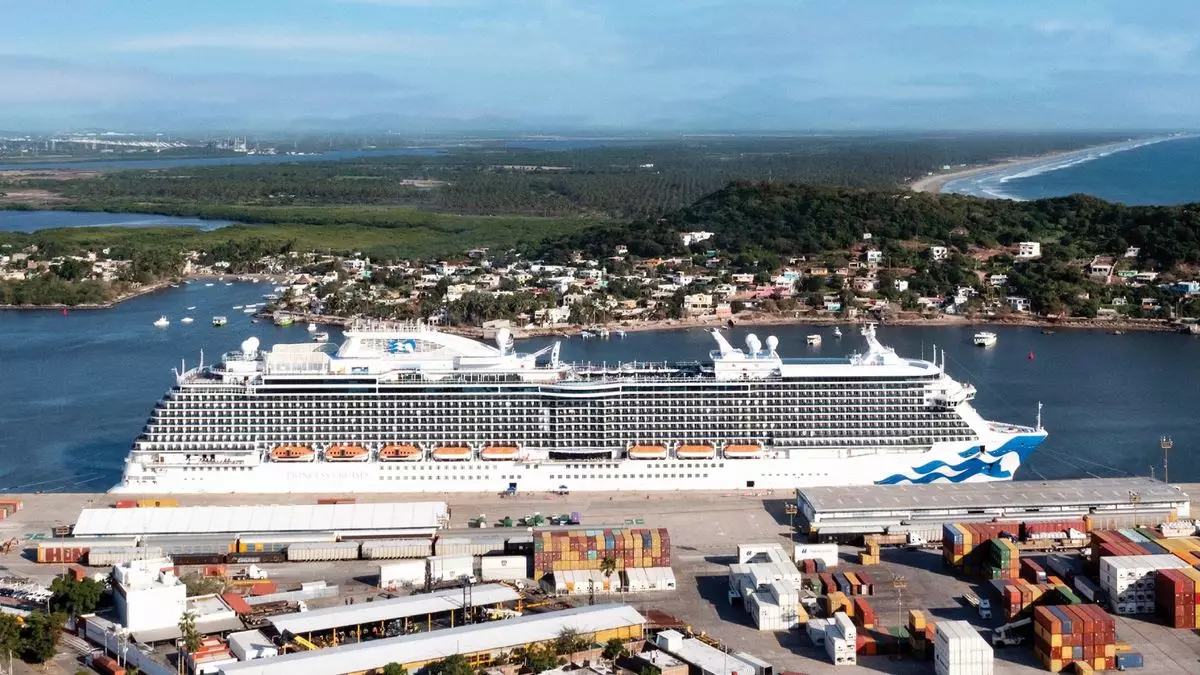In a significant move that has prompted dialogue within the cruise industry, the Mexican government has proposed a $42 tax for every cruise passenger arriving in the country. Originally set to take effect on January 1, this initiative has since been postponed to July 1, 2024, but uncertainty still looms. The announcement has stirred considerable concern among cruise companies, especially as it threatens the delicate balance between tourism and government revenue.
Josh Weinstein, the CEO of Carnival Corp., voiced his discontent during a recent earnings call, asserting that mere postponement is insufficient. He emphasized the importance of having continuous discussions with the Mexican government to illustrate the positive impacts of cruise tourism on the local economy. The cruise industry has historically brought substantial economic benefits to port cities, including job creation and tourism dollars, which, Weinstein argues, are not being adequately recognized in the government’s decision-making process.
Additionally, Weinstein pointed out that cruise companies enjoy significant flexibility in terms of their itineraries. The ability to redirect ships away from Mexican ports could create challenges for the country’s tourism sector if the proposed tax is implemented, underscoring the industry’s leverage in negotiations. This aspect highlights a crucial dynamic in the relationship between cruise lines and destination governments; the former must ensure the latter understands the stakes involved in imposing such taxes.
The basis for the proposed tax stems from the argument that land-based visitors have long paid similar taxes. The Mexican government argues that this move aligns the treatment of air travelers with those arriving by sea. However, Weinstein raised valid concerns about the decision-making process that led to the tax proposal, stating that the cruise industry was not appropriately consulted. This lack of engagement could lead to unforeseen consequences, potentially jeopardizing Mexico’s standing as a favored cruise destination.
Weinstein’s remarks also highlight a broader issue of governance and economic policy, particularly in a sector heavily impacted by fluctuating regulations and taxes. In an environment where the global cruise industry is gradually recovering from the pandemic’s impact, introducing such a tax could have far-reaching implications not only for Mexico but also for the future trajectories of cruise lines’ profitability.
As discussions between Carnival Corp. and the Mexican government unfold, it is vital for both parties to engage in meaningful dialogue. Understanding the nuanced relationship between tourism, local economies, and government policies will be crucial in crafting a solution that benefits both cruise operators and the Mexican economy. The success of such collaborations will be measured by the mutual willingness to negotiate terms that support sustainable tourism while respecting the governmental need for revenue.
The proposed cruise passenger tax is a pivotal moment for the cruise industry as it navigates its recovery and seeks to reinforce its significance as an economic engine for destinations like Mexico. With ongoing discussions likely to shape the future of cruise tourism in the region, stakeholders must come together to find common ground.


Leave a Reply